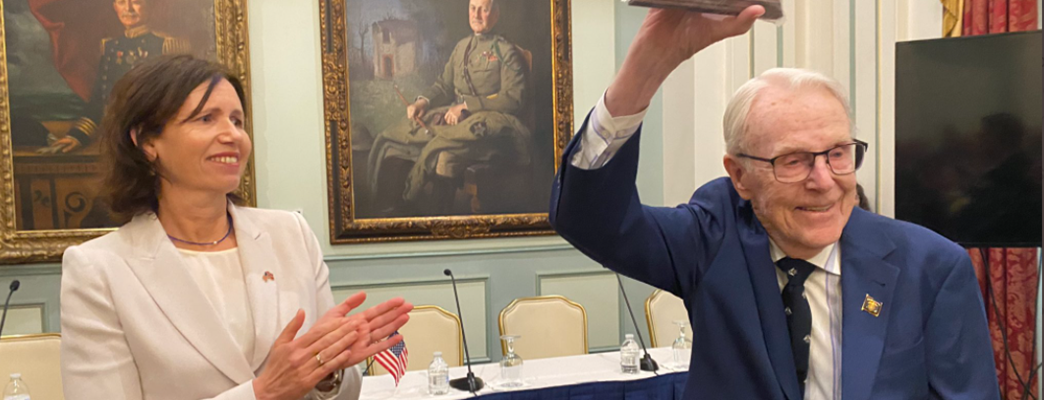This year's theme was "Bridging the Atlantic: Preserving Stability and Predictability in the Arctic in a Time of Great Power Competition." Speakers discussed subjects like requirements for the industrial base, secure communication sealines, and the implications of depending more on cyberspace and space-based capabilities.
The seminar is named in honor of the U.S. Liberty Ship Henry Bacon's crew, many of whom lost their lives while saving Norwegian refugees in the Arctic. This year, Captain Hugh Stephens, a WWII veteran from the same convoy as the ship, was the guest of honor. He shared his story with the attendees, answered questions, and received a commemorative Henry Bacon plaque.
Captain Stephens became an able-bodied seaman on the U.S. Liberty Ship John Ireland when he was 20 years old. He sailed in convoy R-64 as part of the Arctic convoys, which Winston Churchill famously called “the worst journey in the world.” During his run to Murmansk, Captain Stephens and his fellow crew members endured nightly bombings while living with harsh weather conditions and only twenty minutes of daylight each day.
In February 1945, his convoy learned that the Nazis intended to annihilate all civilians living on a small Norwegian island, Sørøya. The British managed to get to the island to pick up some 500 refugees, and the women and children were then placed on Captain Stephens’ ship. Most of the refugees made it to Britain unharmed.
Tragically, not all members of the R-64 convoy survived the experience. A number of ships were sunk by the Nazis on the journey back to Britain. The Henry Bacon Seminar honors their sacrifice each year.
Ultimately, the Liberty ships played an important role in the Allied victory.
